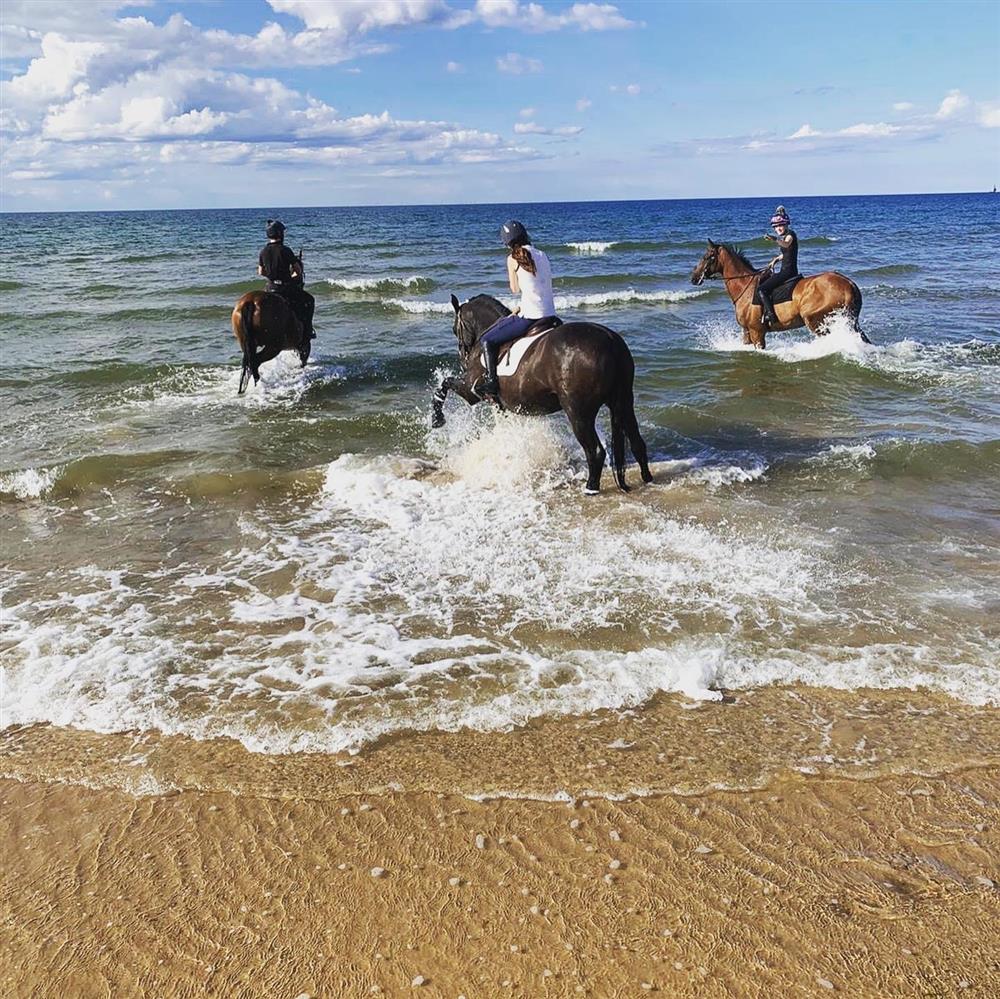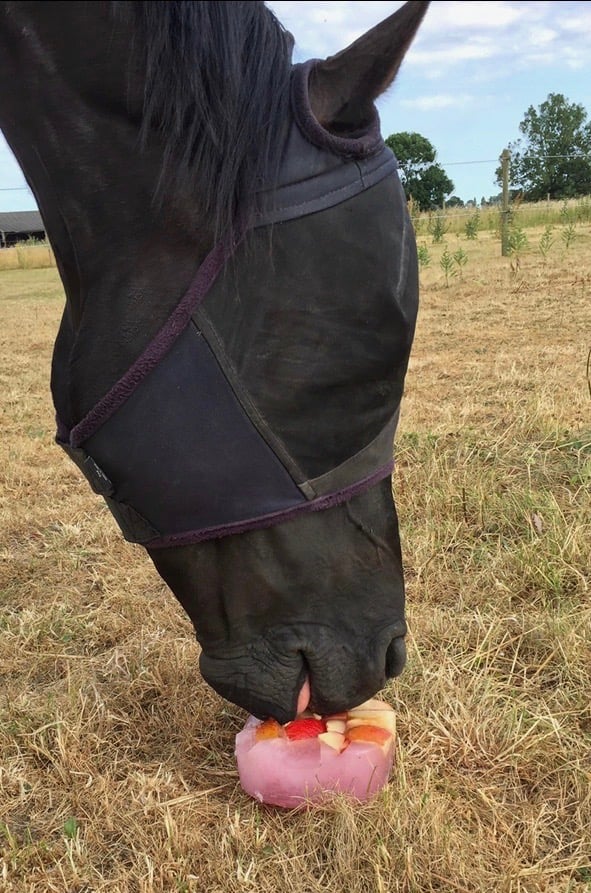Summer can be a wonderful time to get out and about with your horse and have some fun, however the high temperatures can prove dangerous for some horses and result in dehydration and heatstroke. It is therefore important to take on certain management practices to keep your horse happy and healthy in the heat.
Should I keep my horse in or turn them out in the heat?
If your horse is normally stabled overnight, consider bringing them in during the day and turning out at night when it is cooler. If this is not feasible, try turning them out as early in the morning as possible and bringing them back in before the hottest hours of the day. Whilst horses are stabled you should ensure that there is good airflow either by opening windows or safely using fans, this is also important to maintain their respiratory health. Always provide access to clean drinking water and during the time that your horse is in the field, whether this be for a few hours or 24/7, provide some shade to enable them to shelter from the sun.
Protection
Some horses may need extra protection from flies and midges or from the sun when they are grazing. Applying fly spray or creams as well as covering them with a fly rug can help sensitive horses and if your horse is particularly bothered by insects then avoid turning them out near bodies of water such as ponds, lakes, or rivers. Regular poo picking will also reduce the number of bugs around. Horses with white patches on their face or lower limbs (especially close to the hooves) are likely to need sun cream to reduce the risk of sunburn.
Grazing
The hot weather may also affect your grazing so you may need to provide additional forage or feed. We are all hoping for some rain, however, we must be aware that after the recent dry weather a lot of rain may result in rapid new grass growth - some horses such as those prone to weight gain or laminitis may then need to have their grazing/turn out restricted.
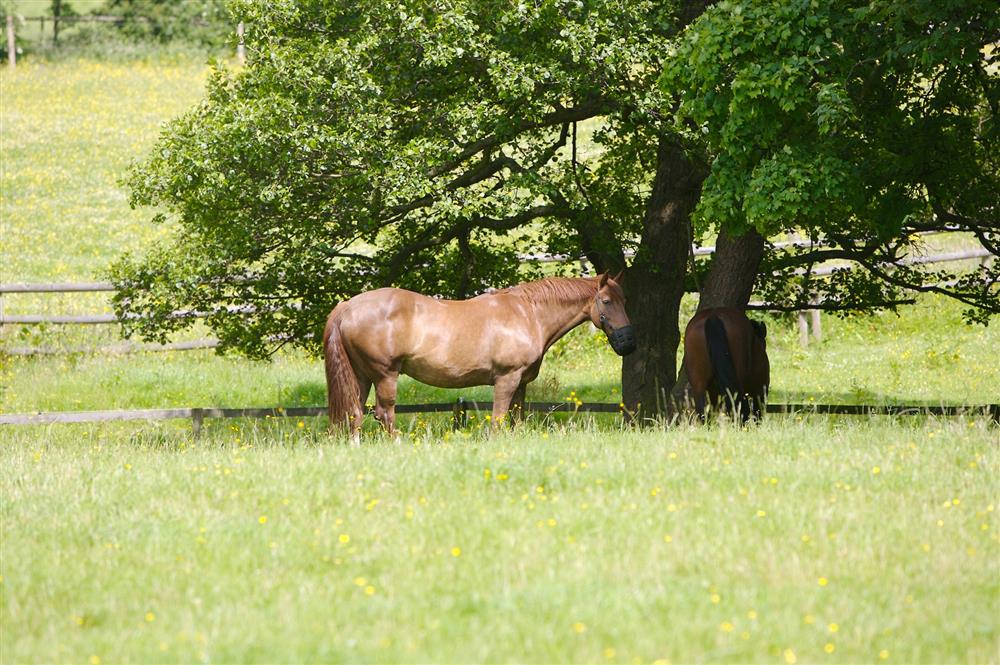
To ride or not to ride in the heat?
If you must ride or exercise your horse, where possible avoid riding in the hottest parts of the day especially if they are not used to working in the heat. Ride early in the morning or later in the evening. Ensure that you cool them down properly after exercise by giving them a nice wash down with a hose or sponge which will also remove any sweat from their coat. In many areas the ground is very hard so take this into account when deciding whether or not to hack out. Avoid any fast work on hard ground and cold hose your horse’s legs after exercise to reduce the risk of injury.
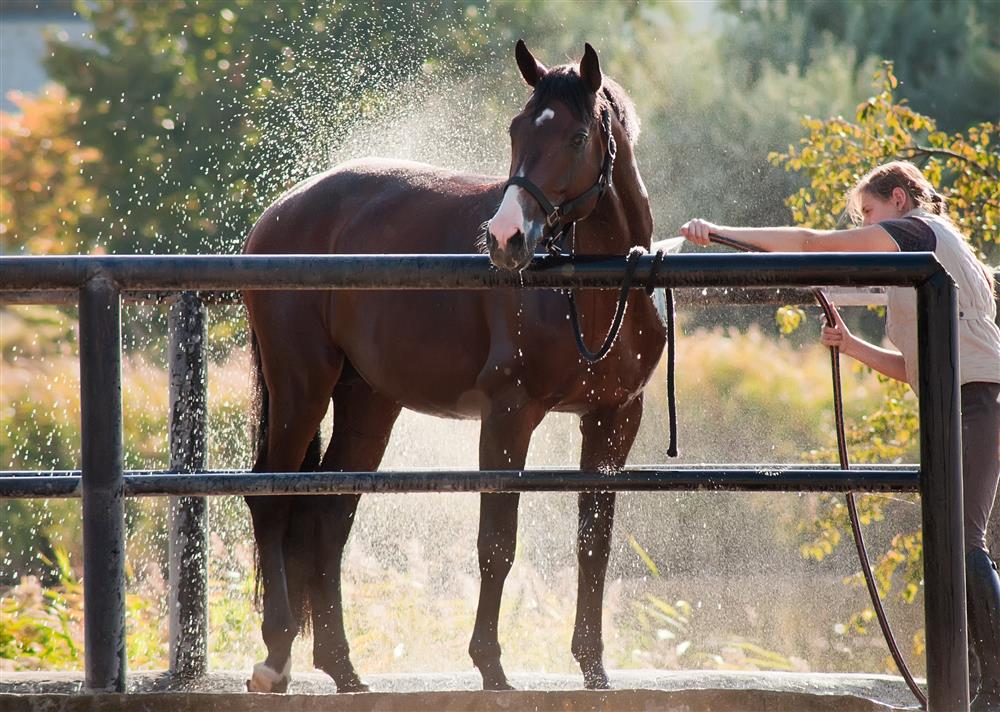
Clipping in the summer
Consider clipping your horse if you know that you are going to be exercising them frequently in hot weather, if they have a particularly thick coat, or if they are overweight.
Take care of those hooves
Hard ground and the heat can cause hooves to crack so keep them very well oiled. Providing certain nutrients every day can help with long-term hoof strength and condition. Hardy Hoof is a great option to encourage resilient and healthy hooves.
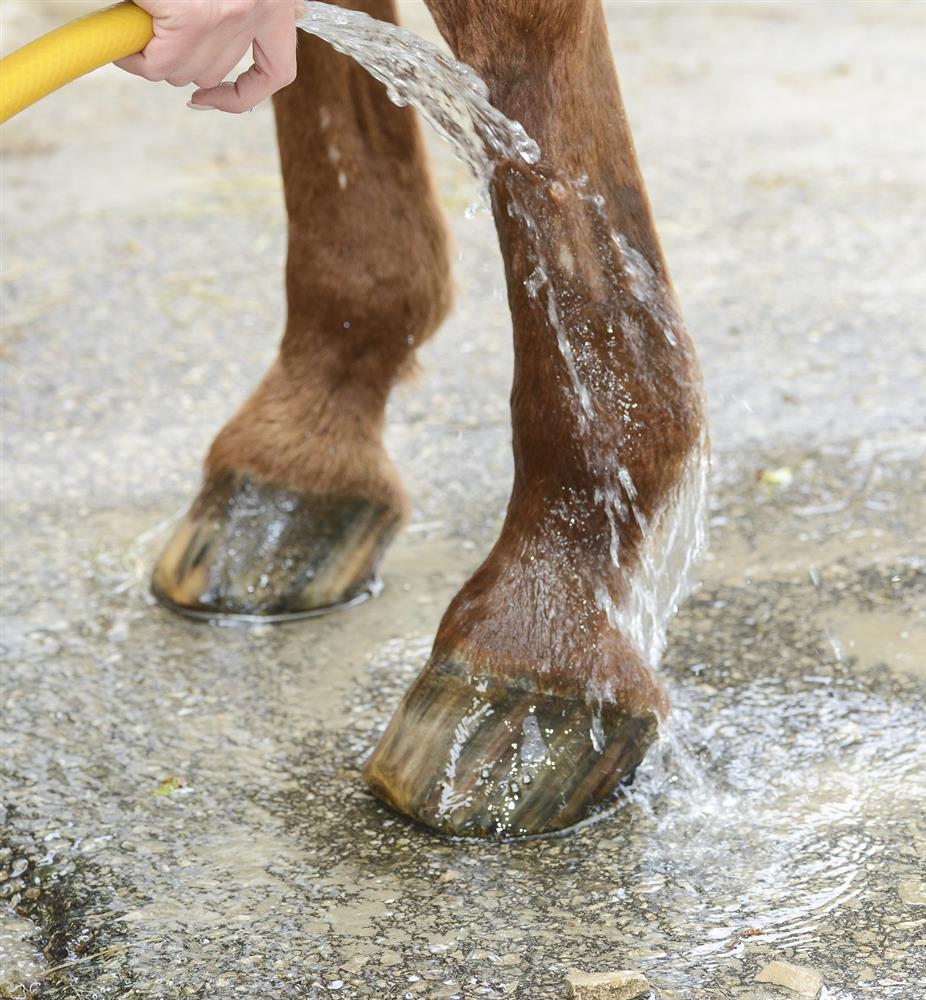
Travelling horses in the heat
If you are travelling your horse anywhere then try to leave nice and early to beat the heat and avoid getting stuck in traffic! Be prepared to get stuck in traffic, have water available for your horse to drink or to wash them down and ensure you are carrying plenty of forage. Know what to do if you do get stuck in traffic in hot weather for a long period of time, here is a helpful article.
When you arrive at your destination, make an appropriate decision if it would be better for your horse to be on or off the horsebox. Where will your horse get the most shade and be in the coolest spot?
Refreshing treats
Whether you choose to ride or not it is important to provide your horse with electrolytes in the hot weather especially if they are being exercised or are sweating. If your horse is reluctant to eat electrolytes, then you could try incorporating them into a mash.
You could also offer your horse an Ice Lick! Quite simply, cut up your horse’s favourite fruit and vegetables and place them in a plastic container. Fill this with water and freeze. Once frozen, simply empty it out in the stable or field for them to enjoy. These can be great fun as boredom busters too!
What to do if your horse has heatstroke
Above all, you should know your horse’s normal behaviour and the signs of heatstroke:
-
Dehydration
-
Depression or lethargy
-
Excessive sweating
-
Elevated heart rate and respiratory rate (that does not return to normal after a period of rest)
-
Heavy breathing
If you suspect that a horse may have heatstroke, then act immediately by taking them to a cool area such as a stable or other shelter and hose down with cool water every few minutes to bring their temperature down gradually. Frequently offer them water to drink and if signs persist or worsen contact your vet.


